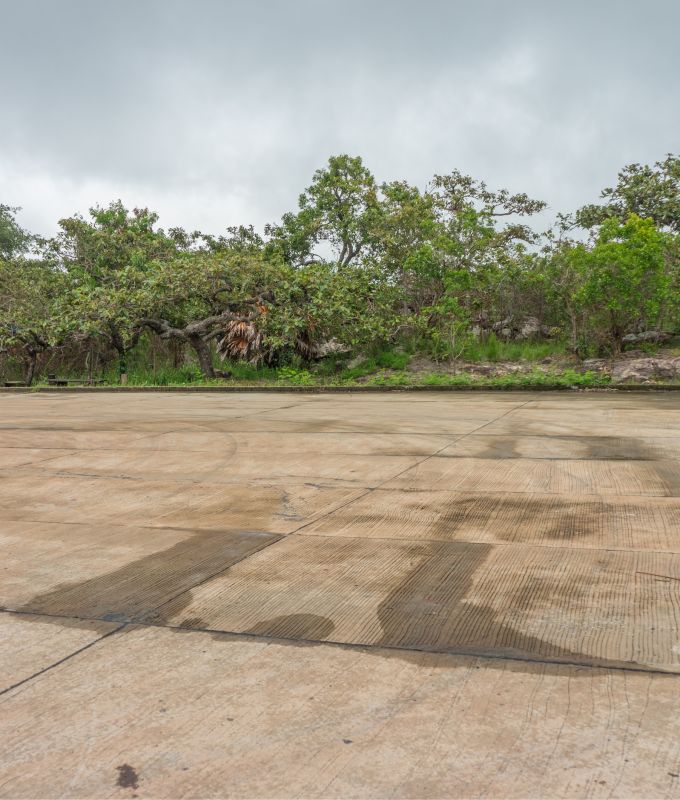Ultimate Collection Of Products For Concrete Projects
A comprehensive guide to the most effective and reliable products for all types of concrete installation needs.
 Concrete installations are foundational elements in many construction projects, ranging from residential driveways to commercial flooring and decorative patios. Selecting the right products ensures durability, safety, and a professional finish. When planning a concrete project, it is important to consider various tools and materials that facilitate proper mixing, pouring, curing, and finishing. High-quality products can help achieve smooth surfaces, strong joints, and long-lasting results. Whether you are a DIY enthusiast or a professional contractor, understanding the available options can make your project more efficient and successful.
Concrete installations are foundational elements in many construction projects, ranging from residential driveways to commercial flooring and decorative patios. Selecting the right products ensures durability, safety, and a professional finish. When planning a concrete project, it is important to consider various tools and materials that facilitate proper mixing, pouring, curing, and finishing. High-quality products can help achieve smooth surfaces, strong joints, and long-lasting results. Whether you are a DIY enthusiast or a professional contractor, understanding the available options can make your project more efficient and successful.
Top Overall Option
Concrete Mixing and Placement Kit
A comprehensive set that includes a durable mixer, measuring tools, and essential hand tools designed for efficient concrete mixing, pouring, and finishing. This all-in-one kit supports various project sizes and types, making it suitable for both DIYers and professionals seeking reliable performance.
Types of Products For Concrete Installations
Concrete Mixers
Machines designed to blend cement, gravel, sand, and water into a uniform mixture suitable for pouring.
Formwork Systems
Reusable or disposable molds that shape and support poured concrete until it hardens.
Reinforcement Materials
Steel rebar, wire mesh, or fiber reinforcements that add strength and durability to concrete structures.
Surface Finishing Tools
Trowels, floats, edgers, and brushes used to smooth and texture concrete surfaces.
Curing Compounds and Sealers
Products that retain moisture and protect concrete during the curing process, enhancing longevity.
Concrete Vibrators
Tools that eliminate air bubbles and ensure proper compaction of poured concrete.
Concrete Edgers and Groovers
Tools used to create decorative or functional joints and edges in concrete surfaces.
Jointing Tools
Devices that help create control joints to prevent cracking in concrete slabs.
Surface Treatments
Overlay and stain products to enhance or modify the appearance of concrete surfaces.
Concrete Pumps
Equipment designed to transfer liquid concrete to hard-to-reach areas efficiently.
Anchoring and Fastening Products
Hardware used to secure fixtures and structural elements to concrete surfaces.
Protective Gear
Safety equipment such as gloves, masks, and goggles to ensure safe handling of concrete materials.
Popular Choices
Compact mixers suitable for small to medium projects, offering mobility and ease of use.
Versatile forms that can be used multiple times for various concrete shapes and sizes.
Tools that facilitate quick and secure tying of reinforcement bars.
Handheld vibrators for compacting concrete in small or detailed areas.
Wide, flat tools used for smoothing and finishing concrete surfaces.
Absorbent covers that help maintain moisture during concrete curing.
Tools that create controlled cracks to prevent random cracking in slabs.
Protective coatings that enhance surface resistance and appearance.
Welded wire mesh used to reinforce slabs and walls for added strength.
Heavy-duty containers for mixing small batches of concrete or mortar.
Devices designed to create clean, rounded edges on concrete surfaces.
Hardware for attaching fixtures securely to concrete surfaces.
The process of working with concrete involves multiple steps, each requiring specific products. For mixing concrete, reliable mixers and accurate measuring tools are essential to ensure proper consistency. During pouring and placement, forms and reinforcements such as rebar or wire mesh help maintain the integrity of the structure. Finishing tools like trowels, floats, and edgers are used to achieve the desired surface texture and smoothness. Once the concrete is set, curing compounds and sealers protect the surface from moisture loss and surface damage, contributing to the longevity of the installation.
Choosing the right products depends on the scope and complexity of your project. For small-scale repairs or decorative work, specialized overlays and surface treatments might be appropriate. Larger projects may require heavy-duty forms, reinforcement materials, and industrial-grade mixers. Proper safety equipment should also be considered to protect against dust, splashes, and other hazards associated with concrete work. By selecting quality products suited to your specific needs, you can help ensure a successful and durable concrete installation that meets your expectations.
Key Buying Considerations
- Project scale and scope to determine the appropriate size and quantity of materials.
- Type of concrete mixture suitable for your application, such as standard or high-strength formulations.
- Compatibility of reinforcement materials with the concrete type and project requirements.
- Ease of use and portability of tools, especially for DIY projects or limited access areas.
- Durability and quality of formwork materials for repeated use or specific shapes.
- Surface finish preferences, including smoothness, texture, and decorative effects.
- Curing and sealing options to protect the concrete during and after installation.
- Safety features and protective gear to ensure safe handling and application.
- Budget constraints balanced with the quality and longevity of products.
- Availability of replacement parts or accessories for ongoing maintenance or future projects.
- Compatibility of tools and materials with existing equipment or supplies.
- Environmental conditions such as temperature and humidity that may influence curing and finishing.
- Ease of cleaning and maintenance of tools and equipment after use.
- Manufacturer reputation and product reviews to gauge reliability and performance.
- Local availability of products to minimize transportation costs and delays.
This page contains affiliate links. We may earn a commission from qualifying purchases to support our content and services.
